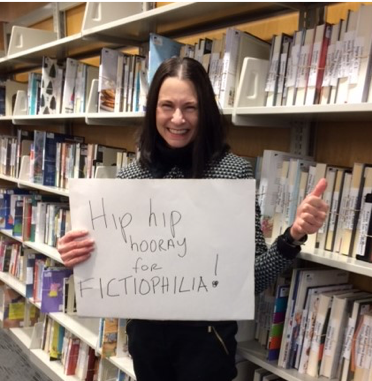LOVING OUR CHARACTERS (Part I)
By June Guralnick

Cupid’s arrow “pierced my heart like a red-hot dagger.” (Touché! I’ve wanted to use E.T.A. Hoffman’s sizzling cliché since I first learned how to spell ‘metaphor’!) And the cause of my lovesick state, you ask?
 Kilt-wearing, sword-wielding, “Jamie” MacKenzie Fraser in Diana Galbadon’s Outlander books (played by Sam Heughan in the heart-palpitating Starz series adaptation). Even as I write this, I feel an avalanche of roiling emotions (embarrassment, self-disgust, amusement, and oh my – lust!) for committing the unpardonable sin of falling in love with a fictional character.
Kilt-wearing, sword-wielding, “Jamie” MacKenzie Fraser in Diana Galbadon’s Outlander books (played by Sam Heughan in the heart-palpitating Starz series adaptation). Even as I write this, I feel an avalanche of roiling emotions (embarrassment, self-disgust, amusement, and oh my – lust!) for committing the unpardonable sin of falling in love with a fictional character.
Society tolerates – in fact, encourages – children’s adoration of imaginary characters (called fictiophilia). Proof? More than five hundred million Harry Potter books have sold and Little Women has been in print since 1868. But fictiophilia-afflicted adults? Tagged “sick losers” - and bundled in with the porn addicts!
Eager to avoid that sticky purgatory ☺ - I decided to investigate just how abnormal it is to fall in love with a fictional character, and explore what types of characters commonly tug on our heartstrings. (Bear with me, friends – I am wending my way to playwriting.)
After exhaustive research (some internet ramblings, fast flips through dog-eared psych textbooks, and mocha java infused chats with gal pals), what did I learn?
1) Falling in love with an imaginary character is a hell of a lot easier than loving flesh and blood beings who often break our hearts.
2) We seek out fictional characters whose struggles mirror our own in some way – or, on the flip side, we embrace characters who live a life we want!
3) Loving fictional characters probably won’t f*ck us up – although if obsessive, may prevent healthy interactions with ‘real’ people.
4) “Whether or not characters are ontologically ‘real,’ our familiarity with them renders them very emotionally potent.”
Potent indeed. I’ll be running to a meeting and boom! – Jamie pops into my head and my heart momentarily stops!
I can hear some of you thinking (ok, shouting): “Get a life - it’s not real love! You’re just (fill in the blank) daydreaming, horny, lonely, avoiding ‘real’ relationships, and looking for love in all the wrong places!”
Je confesse! But just maybe there’s something else happening here too.
Experts tell us the emotion of empathy (if I understand the science correctly) is part of our neurobiological makeup and enables us to fall in love with a fictional character.

I recently returned to civilization after being shipwrecked on an island to discover the world of fan fiction, defined as: “Fiction written by a fan of, and featuring characters from a particular TV series, movie, etc.” There are literally millions of people who are so utterly in love with a character that they have created stories, poems, films, etc. imagining into the life of their amour. (Check out the online Archive of Your Own where you’ll find 2,205,000 users and 5,436,000 fan fiction works!) So - we are not alone!

If I had to hazard a guess, I’d lay odds that larger-than-life, heroic, complex – yet ultimately empathetic and seriously conflicted characters – are the types that capture people’s hearts. I fell in love with Jamie (and upon occasion, other men and women characters) because he is compassionate, courageous, capable of deep, abiding love, (and yes, sexy!) – but also flawed and vulnerable, driven by compelling contrasts (for example, Jamie unabashedly engages in violent battle, yet can’t bring himself to give his wife an injection because it might cause her pain).
Which brings me to plays (ha ha – you thought I would never get here)! Which characters in drama demand our love and affection? In Aristotle’s Poetics, the ancient Greek philosopher claims characters must be good (I interpret this to mean living by a moral compass), true to life, and acting consistent with their own nature. Are those qualities still important for our dramatis personae?
The bottom line? Even though many thousands of plays are being written every year, how many people outside our profession are passionate about the characters we create? In fact, when was the last time YOU fell in love with a particular character in a play (as opposed to a character in a book, film, television series, or animation)? And if your answer falls into the “not since disco was king” drawer, are we somehow failing in our job as playwrights to create characters that can elicit this kind of passion?
Sharpen your pens and arrows, because I want to hear from you! Tell me if you’ve ever loved a fictional character and why – and what qualities they possess that touched your heart? After I receive your comments, my next blog will ruminate on how we might inspire audiences to fall in love with the spirits we create that haunt our minds and plays – and ultimately take flight on stage.

ABOUT THE AUTHOR

Photo by Teresa Pigeon
June Guralnick has created plays, performance projects, and large-scale community cultural projects for four decades. Her works have been performed throughout the U.S. – and beamed to the Space Station! Awards include the Silver Medal-Pinter Drama Review Prize, Second Place-Judith Royer Award for Playwriting Excellence, North Carolina Arts Council Literature Fellowship, Southern Appalachian Repertory New Plays winner, Virginia Center for the Creative Arts Writing Fellows, Hambidge Center for the Arts Writer-in-Residence, and Sewanee Writers’ Conference Tennessee Williams Scholar (University of the South). June’s new full-length play, LITTLE ♀, will receive a staged reading at Burning Coal Theatre in partnership with Justice Theatre in 2020, and her one-act play, SPACE INTERLUDE, will be published in early 2020. For more info, visit juneguralnick.com.
![]() at the top of the post
at the top of the post![]() at the top of the post
at the top of the post